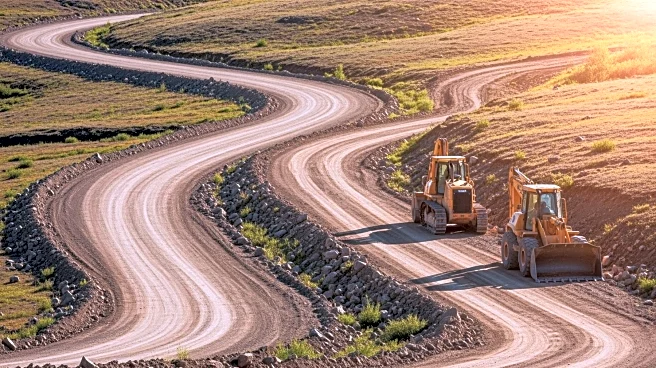What's Happening?
The Trump administration's decision to support the construction of the Ambler mining road in Alaska has sparked controversy. Critics argue that the road would have adverse environmental impacts, affecting
salmon habitats and the Western Arctic caribou herd. The decision also raises concerns about the cultural and subsistence rights of Alaska Native communities. Despite the administration's claims of enhancing mineral security, opponents highlight the potential reliance on foreign processing facilities, undermining the project's economic rationale.
Why It's Important?
The controversy surrounding the Ambler mining road underscores the tension between economic development and environmental conservation. It highlights the challenges of balancing resource extraction with the rights and interests of indigenous communities. The decision may influence future policy debates on infrastructure development and environmental protection, impacting stakeholders across the mining and conservation sectors. Additionally, the reliance on foreign processing facilities raises questions about the long-term sustainability of U.S. mineral security strategies.
Beyond the Headlines
The decision may prompt further examination of the ethical and legal implications of resource extraction projects in indigenous territories. Researchers could explore the role of government policies in shaping community relations and environmental stewardship. The controversy also raises questions about the impact of infrastructure development on cultural heritage and subsistence practices, potentially influencing future regulatory frameworks.










